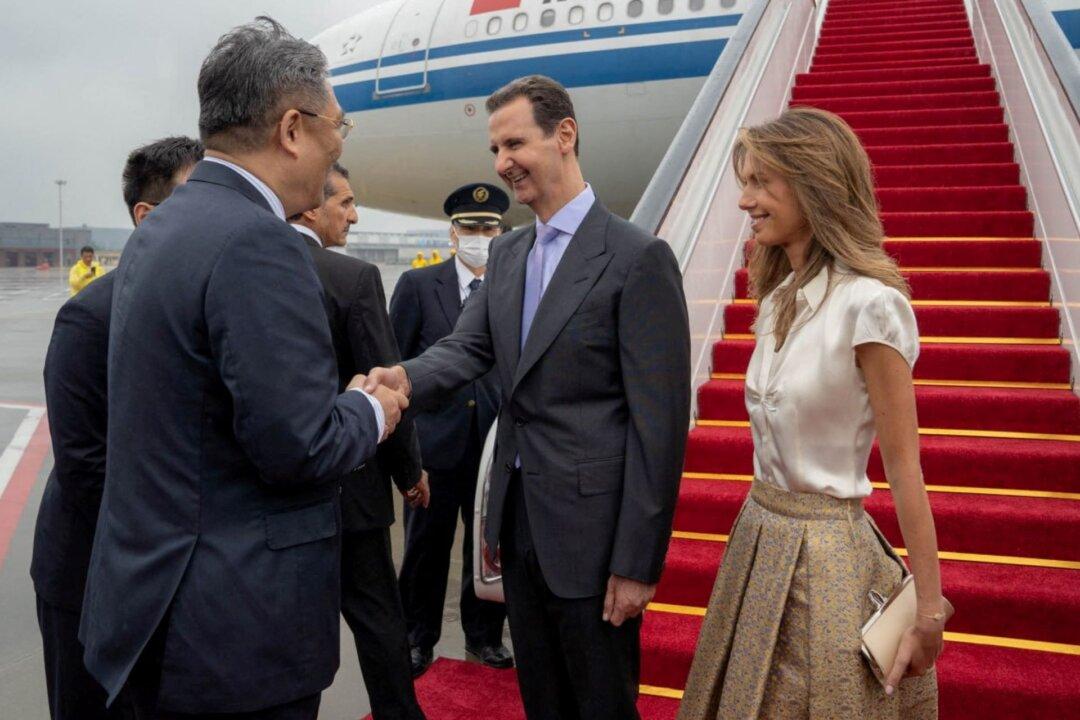BEIJING—Syrian President Bashar al-Assad has arrived in China’s eastern city of Hangzhou, kicking off his first visit to the Asian nation since 2004 as he makes further strides to end more than a decade of diplomatic isolation amid Western sanctions.
Mr. Assad arrived aboard an Air China plane in a heavy fog. The Syrian leader has seldom been seen outside his country since the start of a civil war that has claimed more than half a million lives.





